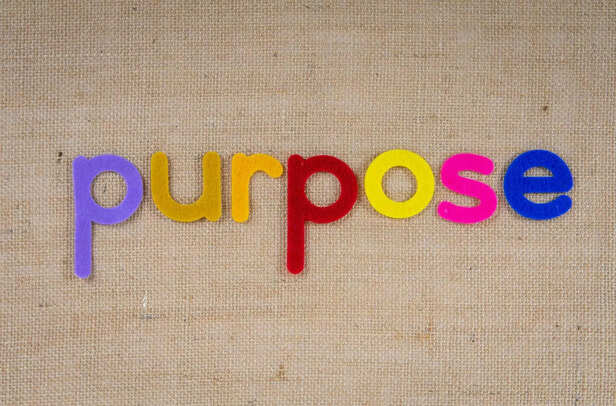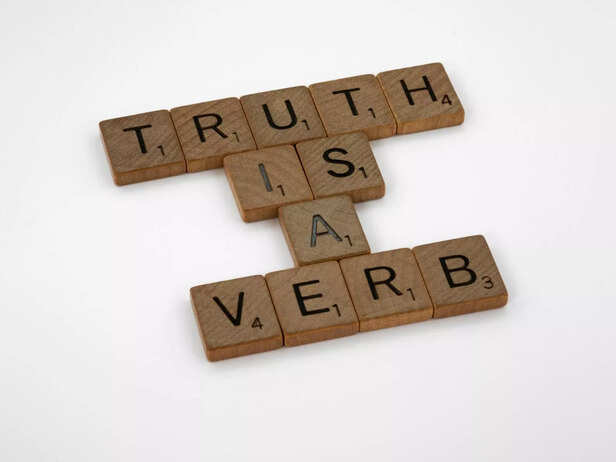There’s a Reason You’re Here, You Were Born for More (And You Know It) - Gita on Dharma
Riya Kumari | May 03, 2025, 23:59 IST
You’re sitting there, sipping your third coffee of the day, scrolling through Instagram, and suddenly—boom. You’re hit with the existential crisis you’ve been pushing aside for, oh, a few weeks now. “What’s the meaning of life?” you wonder aloud, but not too loudly, because let’s be honest, you don’t need your barista giving you unsolicited spiritual advice.
At some point, the idea of finding your purpose comes up. Maybe it’s over coffee with friends, while scrolling through social media, or even while quietly sitting in a room with your thoughts. The search for meaning, the desire to understand why we’re here, why we exist as we do—it's universal. It’s a question that doesn’t always have a neat, packaged answer. But if we stop chasing after external validation, if we stop trying to fit our lives into templates of what success or happiness is supposed to look like, we might stumble upon something more authentic, more aligned with our true selves. That something, often called dharma, isn’t just a lofty, philosophical ideal—it’s a compass. A compass that doesn't force you to follow someone else's map but invites you to create your own path.
Dharma: Not a Destination, But a Way of Being

The idea of dharma is not confined to grand spiritual texts or distant ideals. It’s not about reaching some far-off goal where everything magically makes sense. It’s simpler—and more profound—than that. Dharma is about being in alignment with who you are, deeply and honestly, at any given moment. It’s not an end, but a continual unfolding. We live in a world obsessed with doing. With achieving. With arriving. But dharma doesn’t care for all of that. It’s not about proving yourself. It’s about becoming you, fully and unapologetically, without needing to impress anyone, least of all yourself. What happens when you follow your dharma? Well, it’s not a fairy tale where everything falls into place immediately. Life will still have its mess. But, you’ll find yourself in a rhythm, a quiet clarity that guides you forward even when the path is unclear. You don’t have to hustle to find it. In fact, trying too hard to figure it out is the fastest way to lose sight of it. Dharma is discovered in the moments you stop trying and start being.
The Fallacy of Perfection: Letting Go of the "Shoulds"

One of the most misleading things about the idea of finding your purpose is the belief that there’s a perfect version of it. We are taught that once we find our purpose, we’ll be set, as if we’ll suddenly be living a flawless, picture-perfect life. But that’s not how it works. Dharma is not about perfection. In fact, it thrives in imperfection. It’s about accepting that you will make mistakes, that you will stumble, and that none of it diminishes your worth or your purpose. The most authentic versions of ourselves are never polished. They are messy, evolving, constantly refining. When we stop holding ourselves to the impossible standards of what we should be, we open the door to discovering who we are. Dharma is not about molding yourself to fit some idealized version of success or happiness. It’s about understanding who you are, with all the contradictions, flaws, and rough edges, and realizing that this is what you are meant to offer the world.
Dharma and Free Will: The Power to Choose

Dharma isn’t a matter of fate or destiny. We often think of life as a set of events controlled by forces beyond our comprehension. There’s comfort in that belief—it lets us off the hook, as if everything is happening according to a plan that’s already been written. But this sense of being controlled or led is an illusion. Dharma isn’t about being swept away by some external force. It’s about choosing. It’s about the responsibility to steer your own life, to make decisions that align with your inner truth. It’s not about waiting for a sign or some divine signal. It’s about looking inward, finding what resonates with you, and acting from that place. The world will always throw distractions in your path—expectations, pressure, comparison. But dharma is a reminder that, despite all of this, you have the power to choose your way. It’s the choice to trust yourself over the noise. It’s the choice to act in alignment with your values and your truth, regardless of what others might think.
The Evolving Nature of Dharma

Here’s something we often overlook: your dharma isn’t static. It’s not a one-time discovery. It’s an ongoing evolution, a process that will change as you change. The dharma you embrace at 25 may not be the same as the one you live by at 40. That’s not a failure. That’s growth. We change, and so should our understanding of purpose. We don’t have to cling to outdated versions of who we thought we should be. In fact, holding on too tightly to old ideas of our own purpose can stifle the growth we need to experience. Dharma asks for flexibility. It invites us to evolve, to look at the world with fresh eyes, to accept new challenges, and to redefine our path as we learn more about who we are and what we need.
Dharma and the Art of Alignment, Not Achievement

In a world obsessed with achieving—with ticking off boxes and collecting milestones—dharma asks for something far more subtle: alignment. It’s not about how much you accumulate or how much you prove. It’s about living a life that feels true to you, regardless of how it measures up on a societal scale.
When you align with your dharma, you don’t need external validation. The work you do, the relationships you build, and the way you live all come from a place of quiet assurance. There’s no need to shout your worth or seek approval because you already know, deep down, that your life is meaningful as it is. Dharma is about being present in your own life, not trying to impress others or fit into their expectations of what success should look like.
Dharma as a Daily Practice, Not a Final Answer
So, where does this leave you? In all likelihood, you’ll still have questions. That’s okay. Dharma is not about neatly packaged answers. It’s about the practice of showing up every day, of making choices that feel authentic, of being okay with the uncertainty, and trusting that, with time, your purpose will reveal itself. You won’t have it all figured out in one day. And you’re not meant to. Dharma isn’t a destination. It’s the road you walk, the choices you make, and the quiet courage it takes to align with your true self, one small step at a time. Let go of the need for certainty. Let go of the need for perfection. And allow yourself the space to become who you are meant to be. In the end, dharma is not about doing everything right. It’s about doing it your way, even when the world around you says there’s only one right way. And that, in itself, is enough.
Dharma: Not a Destination, But a Way of Being

True self
( Image credit : Pexels )
The idea of dharma is not confined to grand spiritual texts or distant ideals. It’s not about reaching some far-off goal where everything magically makes sense. It’s simpler—and more profound—than that. Dharma is about being in alignment with who you are, deeply and honestly, at any given moment. It’s not an end, but a continual unfolding. We live in a world obsessed with doing. With achieving. With arriving. But dharma doesn’t care for all of that. It’s not about proving yourself. It’s about becoming you, fully and unapologetically, without needing to impress anyone, least of all yourself. What happens when you follow your dharma? Well, it’s not a fairy tale where everything falls into place immediately. Life will still have its mess. But, you’ll find yourself in a rhythm, a quiet clarity that guides you forward even when the path is unclear. You don’t have to hustle to find it. In fact, trying too hard to figure it out is the fastest way to lose sight of it. Dharma is discovered in the moments you stop trying and start being.
The Fallacy of Perfection: Letting Go of the "Shoulds"

Purpose
( Image credit : Pexels )
One of the most misleading things about the idea of finding your purpose is the belief that there’s a perfect version of it. We are taught that once we find our purpose, we’ll be set, as if we’ll suddenly be living a flawless, picture-perfect life. But that’s not how it works. Dharma is not about perfection. In fact, it thrives in imperfection. It’s about accepting that you will make mistakes, that you will stumble, and that none of it diminishes your worth or your purpose. The most authentic versions of ourselves are never polished. They are messy, evolving, constantly refining. When we stop holding ourselves to the impossible standards of what we should be, we open the door to discovering who we are. Dharma is not about molding yourself to fit some idealized version of success or happiness. It’s about understanding who you are, with all the contradictions, flaws, and rough edges, and realizing that this is what you are meant to offer the world.
Dharma and Free Will: The Power to Choose

Choice
( Image credit : Pexels )
Dharma isn’t a matter of fate or destiny. We often think of life as a set of events controlled by forces beyond our comprehension. There’s comfort in that belief—it lets us off the hook, as if everything is happening according to a plan that’s already been written. But this sense of being controlled or led is an illusion. Dharma isn’t about being swept away by some external force. It’s about choosing. It’s about the responsibility to steer your own life, to make decisions that align with your inner truth. It’s not about waiting for a sign or some divine signal. It’s about looking inward, finding what resonates with you, and acting from that place. The world will always throw distractions in your path—expectations, pressure, comparison. But dharma is a reminder that, despite all of this, you have the power to choose your way. It’s the choice to trust yourself over the noise. It’s the choice to act in alignment with your values and your truth, regardless of what others might think.
The Evolving Nature of Dharma

Change
( Image credit : Pexels )
Here’s something we often overlook: your dharma isn’t static. It’s not a one-time discovery. It’s an ongoing evolution, a process that will change as you change. The dharma you embrace at 25 may not be the same as the one you live by at 40. That’s not a failure. That’s growth. We change, and so should our understanding of purpose. We don’t have to cling to outdated versions of who we thought we should be. In fact, holding on too tightly to old ideas of our own purpose can stifle the growth we need to experience. Dharma asks for flexibility. It invites us to evolve, to look at the world with fresh eyes, to accept new challenges, and to redefine our path as we learn more about who we are and what we need.
Dharma and the Art of Alignment, Not Achievement

Truth
( Image credit : Pexels )
In a world obsessed with achieving—with ticking off boxes and collecting milestones—dharma asks for something far more subtle: alignment. It’s not about how much you accumulate or how much you prove. It’s about living a life that feels true to you, regardless of how it measures up on a societal scale.
When you align with your dharma, you don’t need external validation. The work you do, the relationships you build, and the way you live all come from a place of quiet assurance. There’s no need to shout your worth or seek approval because you already know, deep down, that your life is meaningful as it is. Dharma is about being present in your own life, not trying to impress others or fit into their expectations of what success should look like.
